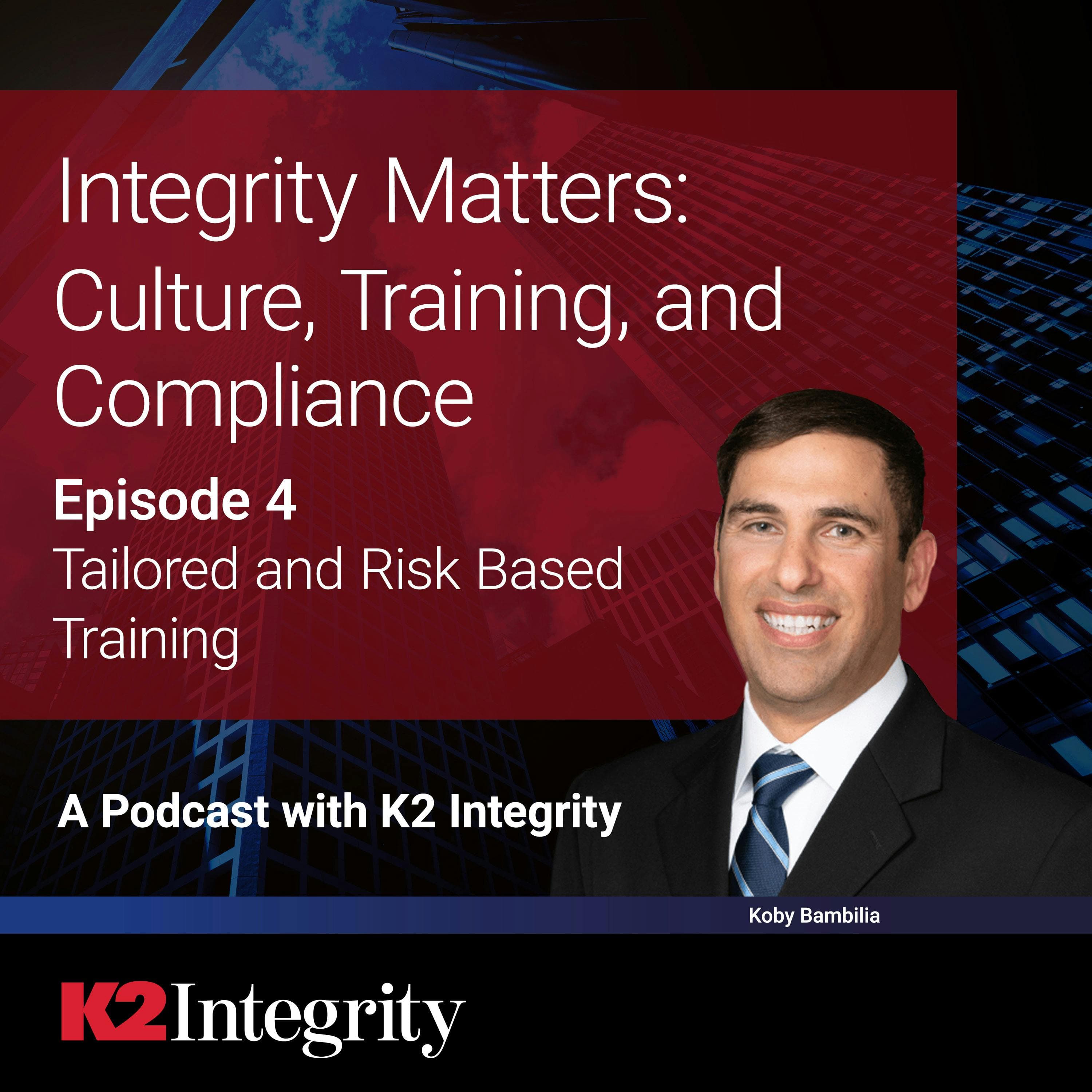Business
Welcome to this special podcast series, Integrity Matters: Culture, Training and Compliance, sponsored by K2 Integrity. This week I visit with Koby Bambilia, Managing Director, and Tina Rampino, Associate Managing Director. Over the series, we break down corporate culture, compliance training and communications. Topics include breaking down the big picture on culture, espresso shots of training, skills development and regulatory changes, tailored and risked based training and operational aspects of training. In Part 4, I am joined by Koby Bambilia to discuss why tailored and risked based training is so critical now. In this episode we went into the weeds of specific tailored and risk-based training. Getting ahead of regulators and ensuring your institution has skills-based trainings is critical. But more than this, regulators now want to see specific risk-based training, tailored to individual needs. This approach is not limited to financial institution regulators but the US Department of Justice (DOJ), Securities and Exchange Commission (SEC), FinCEN, Office of Foreign Asset Control (OFAC) also favor this approach. I asked Bambilia if he could provide some examples from the world of financial institutions and financial services firms. Initially, he noted that an institution cannot have a blanket training without follow-up trainings on specific job functions. Some of the different needs for different employee classifications include bank tellers, who need to know more about cash transactions and regulatory requirements, such as Currency Transaction Report (CTR) and pouch activities. This is obviously different from private wealth managers. Employees in trade finance departments need to know more than others on sanctions and embargoes. Moving on to third party relationships, correspondent banking departments need to know, for example, the red flags for nested accounts. Private bankers, who are covered under the Foreign Account Tax Compliance Act (FATCA), must be trained on the law so they can be more vigilant and aware for detecting tax evasions. The key is that each group requires its unique training and since every institution has a different set of risks, institutions should understand that one form of training cannot fit all situations. Tailored training is a key element and, as Bambilia noted, “a universal one, regardless of the institution’s size, risks, and resources. The example of the examiner saying training is like a burger…demonstrates the need to assure proper and tailored training throughout the institution.” The bottom line is that there is no one training model which will fit all your employees. Bambilia concluded that it “may feel like a heavy lift up front, it can pay its dividends - not just from a compliance perspective but also from an angle of operational efficiencies - you are assuring that your operation and IT staff know what to do going forward. If they know what to do - that will save a lot of pain and effort on their side, but also for you as a compliance officer.” K2 Integrity has developed an online training platform and resource center, Dedicated Online Financial Integrity Network (DOLFIN), to help clients with their training requirements and provide more diverse options for training content and modalities. Find out more about DOLFIN here. For more information on K2 Integrity click here. Texas Tax rate at 80% of 8.25%

